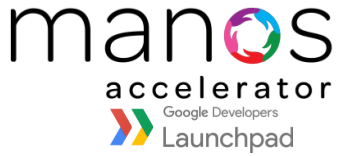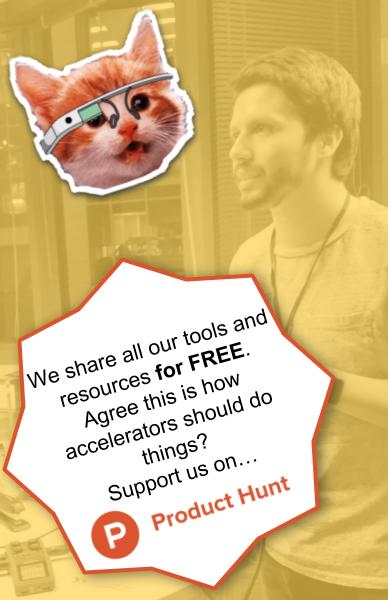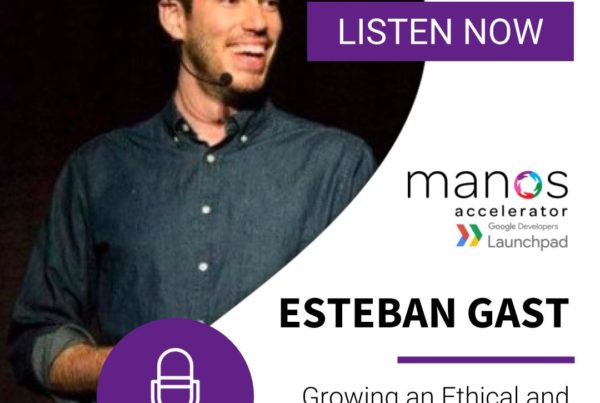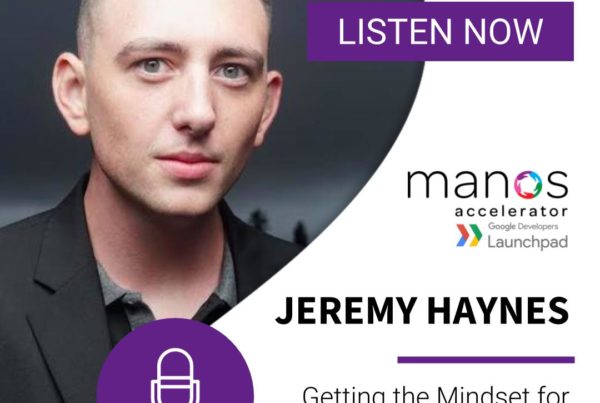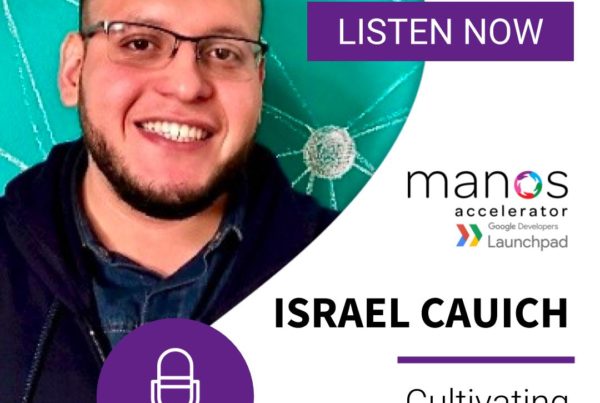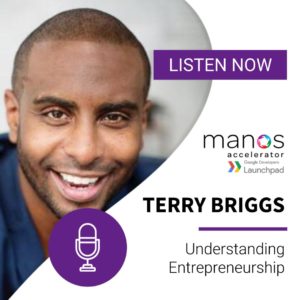 Since selling his first software company, Terry has helped launch a develop several startups while coaching others on how to turn their business ideas to reality.
Since selling his first software company, Terry has helped launch a develop several startups while coaching others on how to turn their business ideas to reality.
He’s an accomplished book author and mentor in the topics of tech entrepreneurship, raising capital, and business/brand development.
SUBSCRIBE
Show Notes
Hello and welcome to another episode of the Manos accelerator podcast. This is the Stacking Growth special today I am with Terry Briggs from…
Terry: …serial entrepreneur. The serial entrepreneur world.
Juan: What are you working on right now?
Terry: A couple of different things. But one of the companies is PartyO, which is a really great company. Pretty much what we’re looking to do is deliver a whole entire party to your door in two hours or less. You could deliver food, entertainment, and the core, all in one all in one shot. So we’re trying to revolutionize the way people host and book parties.
Juan: Terry’s going to be sharing with us today one specific tactical word of advice or tip or trick that you can use in your own startups in Latin America or in the US to take your business to the next level. And Terry, what would that be for you? What’s something that you’ve learned is like your truth that will take you to the next level?
Terry: 01:35 Absolutely. I would say what was like true and authentic to my individual story, especially when you talk about growth hacking. It was “Growth Hacking” before I even knew what growth hacking was. Just like the Latino market, like you said, less than two percent get funded. Same thing with the African American community. It’s the same thing. So one of the things that I did, man, is I knew that because I didn’t have the background, you know, wasn’t a typical founder. I knew I had to be not only as good as but better.
Yeah, so one of the things I would say for every entrepreneur out there is look at what everybody else in your industry is doing.
Terry: 02:17 One: do the exact opposite. Things that work of course, but I like what the Airbnb founders like, what they say is, you know: “do things that don’t scale.”
Two: so finding things, you know, like mixing and just, you know, great tech entrepreneurial stuff, but just hard like core grit, being strategic, doing stuff that, you know, maybe you don’t hear GaryVee talk about or somebody on social media. Like what can you do? That is authentic to you? What are you good at, what are you great at? And figuring out a way just to kind of make it happen. So what I did with my very first startup, which we sold last year called Quickrecruit, one of the things that we did, what I did was I knew it was this industry which was the direct sales industry and like network marketing and those type of guys. And I had experience in that industry.
Terry: 03:00 I knew some people who were like really, really heavy being successful there, but at that time the industry was totally outdated with software and they didn’t have any mobile marketing software for the field sales reps. So what I did like, Oh man, I had an Aha moment. So I went to a company, there are 100M dollar company and I went to them and said, hey, if I build x, would you distribute this in your network of a million sales reps, would you distribute it? They said yes. It’s just if I build a distributed x, I had an idea. I didn’t even have a product bro. I didn’t even have wire frames.
You sold it before you even built it.
Exactly. And we got an MOU, I took the MOU to investors and we got like a hundred grand just off the MOU. You know, no product design, or UI, no landing page, no anything, you know.
Terry: 03:56 And we ended up raising like a half a million dollars and we sold a company for a couple of million dollars, you know what I mean? Totally like growth hacked it, right. You know what I mean? So I would say like don’t get caught up in like the startup box where you think that you have to be in this certain type of frame, right? So use like use your head, be strategic, do things that maybe don’t make sense to what everybody else is saying. And man, get on the phone. Like sometimes it’s just like standard, like sales tech man, damn, can I curse on here?? Like get on that damn phone and just make it happen. And that’s what I knew. I didn’t know the startup way I didn’t know the tech world, but I knew business and I knew this hey just get on the phone and see what they say.
Terry: 04:41 And that’s what happened.
Jaun: We get too fancy, man. That’s something that I really like about the Colombian way of doing entrepreneurship because a lot of it kind of comes out of necessity in the corner. And start selling lollipops or ice cream or whatever. You’re not getting fancy with like, oh, how do I scale this? How do I get 15 of these? You’re literally just putting in the hours and just doing the thing that nobody wants to do. Which is selling. Yes. And what happens in the US, we do the selling last, we start with the spreadsheets with the pitch deck, then we build out a product and then we spend all our time between the pitch decks and product, pitch deck, product, pitch deck, product. And then how is that even entrepreneurship? Like, you’re not even selling anything. You’re not making a penny. You can bleed out like out of your finances and your savings for like a year or two years before you realize like oh it doesn’t make money. And then everybody is like:”Entrepreneurship is so hard. Well it wouldn’t have been if you just started by selling and making money.”
Terry: 05:25 Absolutely. And I will say another thing too, like even with that venture, because I used that company as an example, like when I consult clients and stuff like that is a lot of people tell you what to do but not many people tell you what NOT to do.
Juan: Right. Which is more important because you always feel you still only have 24 hours. So why have that laundry list of a hundred things to do instead of a list of, you know, like don’t do anything else. Only do these two things. Exactly. Once it’s what great mentors do they take out to do’s instead of adding to man.
Terry: You know, one of the things I always say too, that’s really cool, like I think for people to do is like actually when you’re building your product.
Terry: 06:03 One of the things that we did, and this is before you, I didn’t come from the tech world so I didn’t startup reese, I don’t have any of that. So it was just someone; I was in Virginia, you know, just learning, man. So we got this money, we build this product, and I just knew I had all the answers, man knew they needed this and they need it. I was a sales guy, knew what he needed. These do we build the product man, we put the product out, the first version, we put it out to the company and because I was a founder and you know, a team was small, they sent me to go to their corporate office and do the trainings. One of the leaders said: “ Terry, we love the product, but the people here in these type of organizations, they’re not like true sales people.”
Terry: 06:42 They’re more like marketers or some of them are like uncles, mom’s, you know, they, they’re not the traditional salesperson. So even though it was great, they said, Terry, if you just would’ve did one, two and three really good, we still would have painted 9,95 USD a month. So it was too much. Even if it wasn’t like it was just way too much. So it’s like they couldn’t use a Salesforce because then in the direct sales world network marketing world, that’s just way too much. These are just everyday people who are just looking just to quickly market, pitch their product real quick and intake like some contact information, some type of way and kind of create a campaign. So that’s one. It’s so we had to go back and reverse engineer a whole app. So what I tell people is like you may have the dopest, greatest idea you think.
Terry: 07:22 Like really get out there and test it. Really make sure that your customer wants it. Don’t be so married to your product and the idea that you’re too scared to go out there and say “hey, you know, would you really want this?” These are the basics before you go in and you spend a whole lot of money, a lot of energy. Don’t be married to how you build your product. Just go out there and see what they pay and what they would pay for whatever you build. Don’t do too much and just build it and grow it. I think there’s this really great book. I wish I would’ve had that then: I think it’s called Sprint. It’s about how to like go from idea to like prototype testing in like a week, which is super dope.
Terry: 08:02 A lot of people would take a long time, like 30 days, just designing it for like three weeks and then we’re at development and want to wait till we, before we test it, before we get market fit. You can actually do that before you even go to design. That’s why I recommend that book man.
Juan: Do you remember who wrote it up? I can’t remember, but if you just look up the Sprint book. I think some people from Google have something to do with it. I can’t remember, but that’s the type of advice I like to give is just like the the core stuff. Not even like the whole fancy high level startup stuff, but just the core stuff and it makes you sound better as an entrepreneur. I think that’s what we missed. This we’re missing in the city, especially in the tech world is just man, just the basic entrepreneurial skills of course, you know, and then this, the smart techie stuff that we learn and the formulas and all that stuff.
Juan: it should work in service of actually building a
Juan: 08:56 company that makes money. The first thing that happens and now the money works in service of this tech thing that you’ve already built working, so it’s like, oh, I need my business people to make sure that the thing I coded makes money. Like, no, it’s your tech people to work in service of this business and the audience that already wants to buy something.
Terry: 09:15 Absolutely. Make sure it makes sense and I think it kind of helps too when you go onto an investor. There’s another thing I would just say is to be comfortable with applications like Marvel or another prototyping tool. I’m not in design but I know we’ve been using Marvel a lot and then Marvel integrates with another really cool tool that allows you to send it out to people and it allows you to videotape them.
So I recommend that you do stuff like that and kind of test it out to make sure you got all the usability testing and everything because it’s cheaper to change your app and design at that stage than it is when you’re already coding it.
Terry: 09:54 You know what I mean? So it is just better to like test your app out during that time and send it out to as many people as possible. Let your investors see what’s coming down the pike. Let everyday people see what you’re building, get that feedback early and then understand your business.
”Your app is not really your business. It's your distribution channel.
Terry BriggsEntrepreneur, Author
So, but it still allows you to help understand your business. But when you test it, test it with not only one type of person, not only one type of user, like don’t go to, like if you have five people testing it, don’t let it be like the same user profile, you know what I mean; like different people in different levels so that it gives you like a true 360 degree view on how people would actually use it. So maybe we can do this all day, but it’s just really good.
Juan: 10:42 I love that: your app is not your business… Can you say that one more time?
Your app is not your business. Your app is your distribution channel.
Juan: Right, I love that. You know, so many times I talk to entrepreneurs whether they’re going through Manos Accelerator or my experience with the Plug and Play Accelerator, the Silicon Valley Accelerator. They think that their business is let’s say the Uber of pillows or whatever, and that is the business and all they do is spend all their time coding out the new features and it’s like guys, your business, you have a database of pillows and you have a database of people interested in renting out the pillows or buying the pillows. That’s it. Like your app is just facilitating that, but your business should be able to work with or without the app.
Juan: 11:19 It should be a spreadsheet, it could be like snail mail, like the business itself what you’re disrupting is – you’re going to make it faster with an app – you’re going to make it more convenient with an app, but you’re not an app company. That’s like the last thing you do. It has to work in service of it. The app will help you scale something that already works. I love that quote, man. Um, OK. So what one more technical thing you can share with us? If you were to go really like “follow these three steps, these five steps that you’ve seen work really well to growth hacker skill, any of your startups, what would that be for you?”
Terry: 11:54 Ah Man, going back. So I was saying like don’t be afraid to try things that other people aren’t doing in your space. So it is the thing I think business like I’m a little older, I’ve been in business for a long time. One of the things I find out is that most of the success that I’ve had sometimes are not things that things are I can’t even plan for, but I was prepared for. Right? So what I mean by that is just doing the basics man, like entrepreneurial stuff. I go back to just like core business stuff. Sometimes a growth hack is just like how do I connect with my customer? Like because if you’re connecting with your customers better than the other people are: to me that’s a really great growth hack because it’s like a lot of companies, especially tech companies, we hide behind the tech and we miss the human connection.
Terry: 12:38 So if you could growth hack anything in your organization, in your company: growth hack the culture. Really touch your people and go beyond just the technology. Cause this is another thing I learned is that another person’s product can be better than yours. A company can be better than yours, but if you’re marketing and your way of connecting with people is better. Then you can out-market them and you’ll do better every single time if you can out-market them. If you can out-connect them.
And I think that’s the other thing that we get stuck on. “Users” “Users” “User” . Like these are real customers, these are real people, right? So getting outside of the box from the technology standpoint and get out there like touch your people do offline stuff, you know like really get out there in the pavement man.
Terry: 13:24 Like I come from the background of the music industry back in the day and we had real grass roots, like street teams. To me, I think those are more relevant now than ever before. Like just to really get out there and touch people. I think for me that’s the greatest growth hack. Real word of mouth. I think people want that now. Even look at what Mark Zuckerberg is doing, what facebook, he is trying to bring it back to like real life connection and people. Like don’t just be a pathfinder, be a trailblazer. Find out what everybody else is doing, which is great. But look for stuff that’s totally opposite. Even find stuff that people are winning with in other industries and find unique things that they’re doing there and apply it to your industry and see what happens.
Terry: 14:09 Like, you know what I mean? Like what can I take from the airline industry and apply it to what I’m doing? They’re all doing cool things. How can we integrate that in our tech company? So it’s thinking out of the box.
Juan: Too many people are trying to be copycats of just like other people in the exact same industry. It’s the same tactics and then you’re concerned that it doesn’t work for you. Well, yeah. It’s over-saturated.
Terry: Yeah. and I think the thing is we love the world of influencers, but we’re just looking at what does this influencer say. What are they doing that I should be doing? And you know, sometimes it’s not about what somebody else is doing it. What is yours? What does your business uniquely need? What do your customers uniquely need that you can find for them?
Juan: 14:52 Why are you trying to find out what all the influencers are doing when you have customers.
Juan: And you never know what they’re getting out of it, too. They might sell you on a tool, on a tactic just because they’re an affiliate for it, so just don’t put that kind of stress on them that they’re going to be the measure of success for your company. The only people that can actually guarantee that for you are your customers because they’re the ones giving you the money anyways, so why don’t you tailor all of your behavior to them.
Something else that you said that really resonated with me and something I said at the talk yesterday, um, too many people identify their startup as if it was part of them or their baby and something that I’m really watching. Even the way that you talk about your startups, it’s a vehicle.
Juan: 15:28 It’s a thing that’s next to you and you use it more like a, like the guy that like tweaks his cars on the weekends that like changes the wheels, changes, the paint, changes that; it’s something that’s changing all the time and you don’t have any ego tied up upon it to the extent that you’re going to not make a change because you think that startup has to validate you, but you have your ego and your identity tied to it to the extent that you’re still working super hard. So it’s like this funny balance of like I care about it to the extent that I’ll work a hundred hours a week on it, but I don’t care about it to the extent that I think that if someone has like a better idea or if I come up with something better that I won’t pivot. No, I’ll pivot and I’ll change it because it’s not me and it’s not my baby.
Juan: 16:09 It works for me. I don’t work for my startup and it needs to change everything that it can to make sure that it’s making money for my standard of living where I’m trying to go and if it gets to a point that I can flip it, then I’m going to flip it, but it’s not me and too many people are making the mistake of they come up with an idea and they only want to listen to people and ideas and tests that just kind of validate and just keep patting them on the back. Yes, it was exactly what you thought from day one. It was exactly what you thought from day one and in something even watching your company and what you’re doing with PartyO. It’s pivoted like 20 times because I love that. It’s like some people might see that as a bad thing.
Juan: 16:43 You’re making it work for you, and now I just thought that like really want to congratulate you on that, uh, that habit that I don’t think I’ve ever been as intentional in phrasing it as I am now. Like even watching your behaviors. Let’s. It’s really, really good. There you have it.
Terry, what’s the best way to stay in touch with you and get ahold of you on Social? Oh LinkedIn.
And I know the interview’s over. Being intentional in your business, connecting with your customers and as the CEO: develop yourself. Always be on that journey of personal development for yourself. I think one of the greatest things aside from the business side, but individually as a CEO, is to always the build resilience. A lot of times we get so focused on building a business. We start building ourselves, so you have to build yourself as a founder, as a CEO, as a business person. Pick up a book, read. Don’t read tech books, read YOU books. How can I be a better person? How can I be a better leader? How can I listen better to my team? Because it’s all about leading like through listening, you know what I’m saying?
Terry: 17:50 Like I can get all the information in the world about the niche strategy and the next tip, but if I’m not solid as a person, right? If I’m not developed, if I’m not strong enough,
Juan: 17:59 You won’t be ready for it. The moment that these big opportunities come. The moment money gets dumped into your lap. If you weren’t ready for it, you’re going to be exposed. But people will be able to see that. No, you can’t actually get up at six in the morning like the Y-Combinator guys and sure you can get into Y-Combinator. You can get accepted by the program so you can get the funding and all it’s going to do is expose the fact that you haven’t been practicing excellence for years. It’s like getting up one day and thinking you can be a professional athlete. Sorry. These people have been doing it since they were six years old in putting their whole life to it. It’s the same for entrepreneurship. It’s a game of excellence in the long run.
Terry: 18:35 Good stuff, man. Well, I appreciate you having me on, man. This is great, totally unexpected. But yeah, just be, prepared man. I’m a big fan of just different motivational speakers and stuff. I think someone that’s helped me and I’ve been following for some years – his name is Les Brown; he says “better to be prepared for an opportunity that you don’t have than have the opportunity and don’t be prepared.” I love that. So I always say as a founder or CEO, as young entrepreneurs starting, man, just always be prepared. Always be ready. Always have your pitch deck ready and don’t only have your pitch deck, just know your shit man. Like don’t just get up there and talk about it. Know your stuff. Like really know your stuff in and out, you know, don’t be afraid to challenge yourself. That’s just gonna make you better. Go to different workshops anywhere you can go to network. You know, just little stuff man.
Terry: 19:24 Like I’ve been in a room with CEO’s who just don’t know how to interact with people like great idea guys, but they don’t know how to move. They don’t know how. Just basic business stuff, how to interact and know when to talk, when not to talk. I mean come on. This is this basic business stuff. Business stuff is people stuff.
You need to keep in mind that investors will invest in you as a person first. I am an investor myself. I like to connect with the person that I believe in first and not only their passion, but if I see they have their shit together and whether the business is good. Great people. That I can connect with. They’re teachable. That’s people who I want to rock with.
Terry: 20:05 You know? So don’t be afraid man. Just develop yourself. Be the best version of yourself possible. Never stop learning. You know, I believe if you want to be a lifelong earner, you need to be a lifelong learner. Okay, so let me say that again, if you want to be a lifelong earner, make a commitment to be a lifelong learner, right? Because it’s all about self development, right? Always. So the more you can develop yourself, the more you can learn, the more your income. You can make more money, more opportunities. Right? So never stop learning. Never stop being the best version of yourself. So I know it’s not as technical as probably some of the other interviews, but these are the things that have helped me in the years with different ventures that I’ve had.
Juan: 20:44 Juan: It’s the real deal because we’re fixing it at the bandaid level. I see so many entrepreneurs that come to these conferences or go to the accelerators and they want to know the tactical growth hack that it’s like, what’s the 20 minute activity that I can do that can take my idea and make it work? It’s like, guys, you’re not there yet. Like, let me look at your company. Let me look at your entrepreneurs. Let me look at your CEOs guys. You’re just not ready. It’s, there’s nothing to expand. There’s nothing to expose pointing. You’ve got to think of like growth hacks and all these opportunities, money, investors, all of it. It’s pouring gasoline on something that’s already working. People try to see it as the match. It’s not.
Terry: 21:17 That’s good stuff. And just remember that there were people growing businesses and selling companies before apps were around, you know, before tech really took off. There’s tons of other companies who are 100M dollar, billion dollar companies and they don’t have real hardcore tech involved.
So I’ll say that to say that there’s real business shit that’s being done internally. So again, like we said earlier, don’t stop focusing on just those core business things, you know, learn like sales, and if you’re not a great sales guy, find somebody who’s great at sales. Don’t be egotistical. I see that a lot with founders too. Don’t be bossy. If just don’t have the answer to something don’t be afraid to say “I don’t have the answer”.
Terry: 22:00 I think one of the coolest things with this particular venture, uh, with Willie, PartyO. One of the things I like, you know, we’re part of an accelerator in Santa Monica and one of the things I think is really cool, even though I’ve had my own business success being a part of that accelerator, I’m still open when we have our design and we have our meetings and you know, our you know, accelerator, a VC guy will say, well Terri, this is great, but let’s maybe take this step out. I’m like, oh okay cool. So we thought we may have had the answers. But then to have somebody else come back in and say, this is great, but let’s take this step out. Let’s not take the users down this rabbit hole, let’s cut this here, let’s do this here.
Terry: 22:35 Like to me, that’s invaluable: having a team who will challenge you. People who are not just “yes” people. People who are really challenging you to make sure your product is great, make sure you’re connecting with your customers. And I thought that was really cool for us. Where the VC guy, he told us, he said, look, go out there and talk to your customers. I thought that was so great.
These are things that we know, but it’s good to hear that from a VC who’s a senior VP at AT&T, worked at eBay for a couple of years. These guys know their stuff. So don’t be afraid to listen.
Juan: 23:05 They’re not even telling you “No”. You think sometimes if you talk to a big mentor that they’ll just tell you don’t do this. Don’t do that. In terms of like things that you think work well. There’s also a lot of ego tied into it because nobody wants to sit there and hear “you’re doing this wrong, you’re doing that wrong.” Like a lot of the times, it’s them saying you’re doing this RIGHT. Just double down on that. Like, you know, talking to your customers and you may have just known it innately now have you Elon Musk tell you: “it’s literally that. Like all the other stuff is garbage.” It’s, that and the bigger and bigger the people that tell you like “it is that” the more you can be like, okay, doubling down on that. Still ignoring everything else it is that. And I was doing it kind of because I felt it by gut, but also
Terry: 23:46 I wasn’t as confident in it and I was getting distracted with other activities. So talking to mentors can help you actually double down on things that you were doing right. Just because they pointed out that is the right thing.
Terry: I’m gonna talk. I’m a talker. I love to help people. And I need to come back to that, because I don’t want anybody to take that and say, okay, – especially when you’re dealing with a lot of young entrepreneurs – they’ll listen to this podcast again, like we said earlier that people listen to influencers and they will just do whatever somebody says. Right? And just like, no, that’s not what I’m saying. I’m not saying that, but I’m saying is just be open, be a sponge to listen. However, sometimes when we do deal with our investors is to still know your product and your customers better than your investors because just because they say you should do this, you should do that.
Terry: 24:32 If you come back and say that’s a good point, but the research shows this. And then then if, the data is there, then they will sit back. Oh, okay yeah. They’re happy to get the pushback if you have a reason. If you’re doing it out of ego, they’re not happy with that. If you have a reason, then oh, okay, hey, you know your shit. Because if they’re like, remember they’re your investor in there, your mentor, but they’re not there to build your company for you, right? So like they’ll tell you, okay, you should do this. And then you’re like, okay, okay, okay I’ll do that. Like, no, don’t do that all the time. Still stand your ground if it’s something that’s really based off data and can say, okay, we found this about our customers like there’s x amount of birthday parties a day and they do spend this way and we know that the average spend is this base based on this collective data, this information.
Terry: 25:15 So when you show that,they’re like, oh, okay, move on. But the thing is to be confident in what? In what you know. So if you’re not confident in your product. Then they’re going to give you advice and try to guide you because you look like you don’t really know your shit, you know? So just be confident.
Okay, Manos Nation! Do not forget your chance to win digital goods and resources on every episode right here on the podcast. It’s very simple. You just subscribed to the show on itunes in. Once you’ve done that, message the word “Manos” to m.me/ManosAccelerator. Subscribe on itunes and then message Manos to the website, m.me/ManosAccelerator. See you on the next one.
There you have it. Terry is involved in several startups, just sold a business for multiple seven figures, has grown multiple businesses. Thank you so much for sharing all of this insight and be here with us today.
Glad to be here, but you guys are rock stars, man. I’m pretty sure. Thank you, man.

